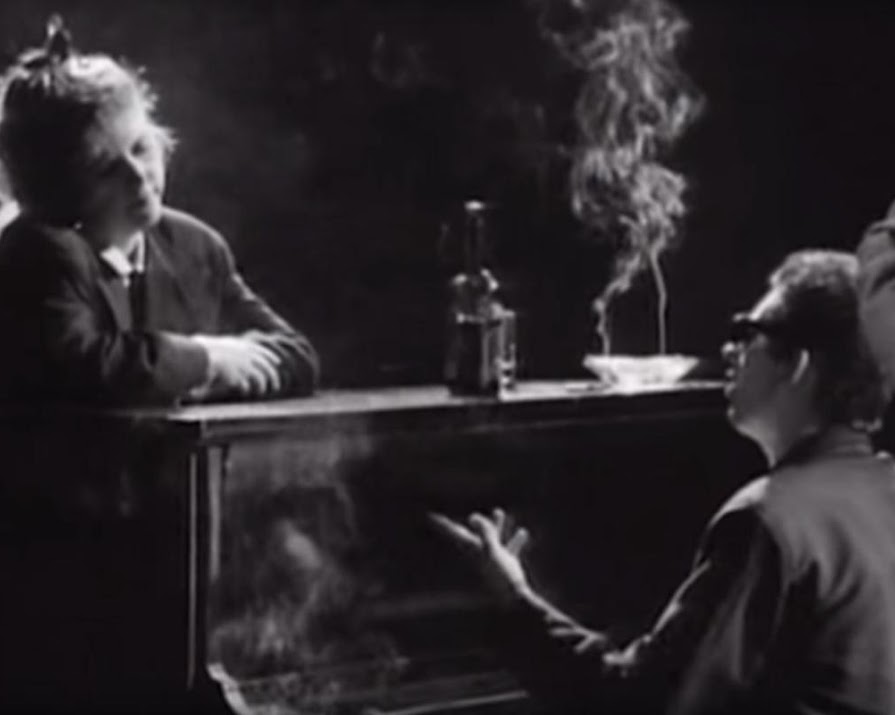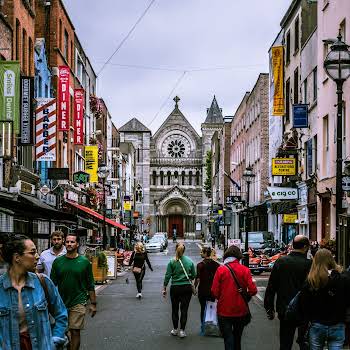
The Pogues’ Shane MacGowan responds to Fairytale of New York lyrics controversy
By Jennifer McShane
08th Dec 2018
08th Dec 2018
There has been a lot of talk in recent days about the so-called hidden meaning and inappropriate lyrics in some of our favourite Christmas songs. We published a piece recently that divided readers, following the news that some Irish radio stations had decided to remove Baby, It’s Cold Outside from playlists and censor the ‘homophobic’ use of a particular word in Fairytale of New York.
One can definitely see the logic in the argument made for Baby It’s Cold Outside, bearing in mind that it was written in the 1940s. In 2018, the undertone of the lyrics has been read by many to imply sexual coercion. The woman really wants to go home, and the man – who keeps cutting across her – doesn’t want her to leave. And so, some are of the opinion that it’s now inappropriate in the #MeToo era. The Irish season radio station, Christmas FM, has said it has removed the song from its playlist as “it doesn’t resonate well with listeners.” That said, there has been much debate about some new interpretations of the track.
An ex-English teacher posting on Tumblr argued that “yes, by applying today’s worldview to the song, it does sound like a rape anthem but the song makes sense in the context of a society in which women are expected to reject men’s advances whether they actually want to or not. The woman is perfectly sober and about to have awesome consensual sex and use the drink (offered to her in the song) as plausible deniability because she’s living in a society where women aren’t supposed to have sexual agency .. It’s not a song about rape, it’s a song about a woman finding a way to exercise sexual agency in a patriarchal society designed to stop her doing so.”
Fairytale of New York is a particularly beloved Christmas song. Not least because it’s Irish, at this stage it’s rooted in nostalgia. It has lost none of its impact; the songwriting prowess of Shane MacGowan ensured that the track, over twenty years after its original release, is timeless – like all truly great works of art are. Even so, some of its lyrics have also been criticised. In the song, Kirsty MacColl calls MacGowan’s character a “cheap, lousy, f****t” leading a number of Irish stations to censor the word.
The argument has also been made that while many object to MacColl using the terminology, few cry outrage for MacGowan using what is demeaning language in relation to her – MacGowan calls MacColl “an old slut on junk.”
This week, MacGowan has released a statement on the lyrics, saying that “The word was used by the character because it fitted with the way she would speak with her character. She is not supposed to be a nice person or even a wholesome person…”. He added that the use of the term was “never intended to offend.”
He reiterates the argument that the song was of its time, but added that he thought it fine if some saw fit to censor. “Her dialogue is as accurate as I could make it but she is not intended to offend! She is just supposed to be an authentic character… If people don’t understand that I was trying to accurately portray the character as authentically as possible then I am absolutely fine with them bleeping the word but I don’t want to get into an argument.“
His full statement is below:
Shane McGowan gives us a statement with his reaction to the #FairytaleofNewYork censorship calls @VirginMedia_One #TonightVMT pic.twitter.com/LudzWjZK9l
— The Tonight Show (@TonightVMT) December 6, 2018























